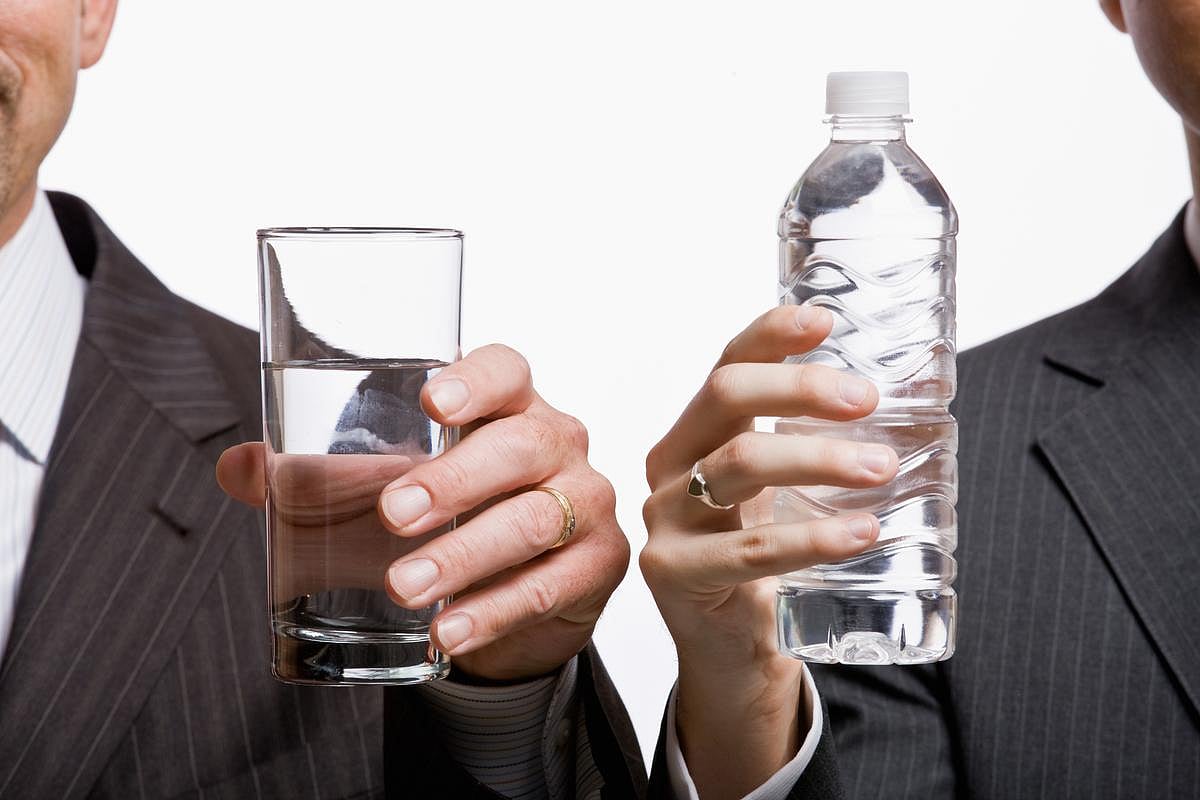Get Healthy!

- I. Edwards
- Posted July 5, 2025
Is One Type of Water Healthier Than Another? Here’s What Experts Say
Alkaline. Electrolyte. Flavored. Walk down the beverage aisle and you’ll find all kinds of waters promising extra health perks. But are these fancy waters really better for you?
Not really, Tufts University experts say.
“There's no physiological basis that there's some metabolic benefit to these specialty waters over just regular, plain old water,” said Roger Fielding, a senior scientist at the Jean Mayer USDA Human Nutrition Research Center on Aging at Tufts in Boston.
For most people, Fielding said the best thing to do is simply drink more fluids — especially since many people walk around mildly dehydrated.
“If you have a preference for a beverage and that's going to make you drink more and you’ll be more attentive to rehydrating with that beverage, and you have the resources to purchase that beverage, well have at it,” Fielding said in a news release.
“Just like with sweetened beverages to an extent, if you're not in excess, you're more likely to rehydrate because a beverage is sweetened or flavored,” he added.
Still, Fielding urged people to check nutrition labels — yes, even on water. Waters labeled with “added electrolytes” may contain added sodium.
Adults should aim for less than 2 grams of sodium a day.
“If someone consumes large amounts of water with high levels of sodium, they could elevate their risk of hypertension and other negative cardiovascular outcomes associated with excess salt intake,” Fielding said. “But most of these beverages that provide those kinds of electrolytes, they're fairly dilute.”
Even for people who sweat a lot — like endurance athletes or hot yoga devotees — he said it’s “very difficult to induce an electrolyte deficiency.”
Electrolytes, such as sodium and potassium, help your body with important tasks. They’re found in food and drinks and are also made naturally by the body.
“The electrolyte concentrations inside our cells, and also in the fluids that are outside our cells, like the blood, for example, are very tightly controlled and regulated,” Fielding said.
“That’s because they have an impact on how our muscles function, how our kidneys work, and how our hearts sort of beat 72 times every minute," he explained. "So, increasing the electrolyte concentrations by consuming a beverage is not going to influence the overall electrolyte concentrations in our bodies.”
Some waters are labeled “alkaline,” suggesting they help balance the body’s pH (acid-to-alkaline) levels. But Dr. Bess Dawson-Hughes, another Tufts scientist and professor of medicine, said there’s no proof that young, healthy people benefit from drinking them.
“We don't have direct evidence that shows a benefit from alkaline water interventions compared with non-alkaline water interventions,” Dawson-Hughes said.
“But it would be logical if, as an older person, you have an acid-producing diet and it's costing you bone and muscle that you might do well to get alkali any way you could get it,” she added.
However, she said older adults may benefit if they have a diet high in acid-forming foods like proteins and grains.
“When we're young, our kidneys are functional enough to make needed adjustments to get us pH balanced, by dumping extra hydrogen ions,” Dawson-Hughes said.
“When we age, our kidneys decline in that capacity. If the kidney can’t get rid of excess acid, guess what happens next?" she said. "Bone is resorbed or lost because bone is, in essence, an alkali reservoir.”
Eating more fruits and vegetables — alkali foods — can help, and alkaline water might play a small role too, though more research is needed.
Fielding said enhanced waters may help older adults who avoid drinking due to bladder problems or simply forget.
“For caregivers and providers, it’s important to remind the aging population that staying hydrated is important,” she said. “We need to encourage people to consume an adequate amount of liquid, because they might not know to do it on their own.”
But at the end of the day, you don’t need to spend extra money to stay hydrated.
“The best fluid replacement that you can probably drink to prevent becoming dehydrated is water,” Fielding said. “Water trumps everything, except in maybe some very extreme circumstances.”
More information
The Mayo Clinic has more on whether alkaline water is better than plain water.
SOURCE: Tufts University, news release, July 2, 2025


